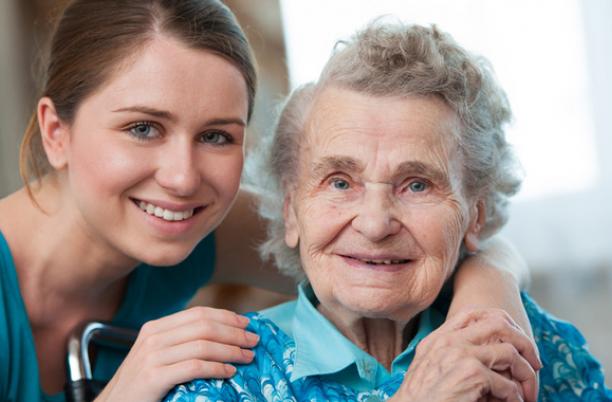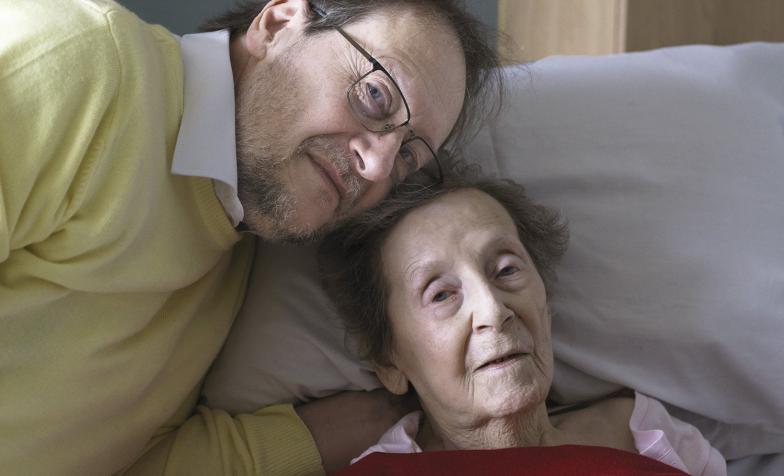
Supporting family and carers

Family carers are a vital source of emotional and practical support for people who are living with a life-limiting or terminal condition. Yet carers face many challenges of their own.
On this page you'll find resources about the needs of carers, and how to support them.
Family and carers' needs
Research suggests that alongside the rewards and pride of caring for a loved one, many carers epxerience considerable stress:
- Caring can have a negative impact on health and wellbeing [1]
- 70% of carers will hide their suffering [2]
- Carers are often isolated [3]
- They can miss out on significant employment opportunities in life [4]
- They can face financial hardship. [5]
Assessment and support
Because they experience a range of challenges, carers can find it difficult or impossible to get the help they need. All assessment and support for carers needs to be comprehensive and person-centred, focusing on the needs of each individual.
Carer Support Needs Assessment Tool Intervention
The Carer Support Needs Assessment Tool Intervention (CSNAT-I) helps to systematically and holistically assess the needs of those who are caring for adults with chronic and progressive conditions (including cancer). It is facilitated by practitioners, but led by carers.
CSNAT-I is evidence-based. The research underpinning the intervention was informed by carers and practitioners.
It was developed by the CSNAT-I team, led by Professor Gunn Grande (University of Manchester), Dr Gail Ewing (University of Cambridge) and Professor Morag Farquhar (University of East Anglia).
Achieving whole-systems change
Prof Gunn Grande, Dr Gail Ewing and the CSNAT-I team investigated the structures and procedures that need to be in place in order to effectively identify, assess and support carers during end of life care.
This research was carried out with the support of Hospice UK and the NIHR Collaboration for Leadership in Applied Health Research and Care Greater Manchester. The investigation included a broad range of stakeholders.
In 2018 we published findings from the investigation, which made 10 recommendations for achieving whole-systems change.
Recommendations for change
- Consistent identification of carers within the care setting.
- Demographic and contextual data on who the carer is and their situation.
- A protocol for assessing carers and responding to the assessment.
- A recording system for carer information, separate from patient data.
- A process for training practitioners about carer assessment and support.
- Available time/workload capacity for carer assessment and support.
- Support from senior managers for carer assessment and support.
- Role models/champions for carer assessment and support.
- Pathways for communication about carer assessment and support.
- Procedures for monitoring/auditing processes and outcomes of carer assessment and support.
Research evidence on carers' needs
-
The Current State of Caring for Family Carers in UK Hospices: Findings from the Hospice UK Organisational Survey of Carer Assessment and Support.
2019
This report summarises the provision for carer assessment and support across the hospice sector in the UK. It makes recommendations about how hospices can improve assessment and support for carers.
The evidence for this report was taken from the Hospice UK Organisational Survey of Carer Assessment and Support (HUK-OSCAS) 2018, which was carried out by the CSNAT-I team with the support of Hospice UK and the NIHR Collaboration for Leadership in Applied Health Research and Care Greater Manchester.
-
Supporting family carers: report on the evidence of how to work with and support family carers to inform the work of the Commission into the Future of Hospice Care
2013
This report draws together knowledge about how best to work with, and for, family carers of those facing the end of life. It provides recommendations that address important gaps in service provision.
Useful links
The content and views expressed by the following organisations do not represent the views of Hospice UK.
Related Hospice UK resources
References
- Carers UK. Facts about carers 2019. London: Carers UK; 2019
- Carers UK. Carers in crisis. London: Carers UK; 2008
- Carers UK. The world shrinks: carer loneliness. London: Carers UK and Jo Cox Loneliness Commission; 2017
- Carers UK. State of caring 2022: a snapshot of unpaid care in the UK. London: Carers UK; 2022
- Joseph Rowntree Foundation. UK poverty 2022: the essential guide to understanding poverty in the UK. Joseph Rowntree Foundation: York; 2022




